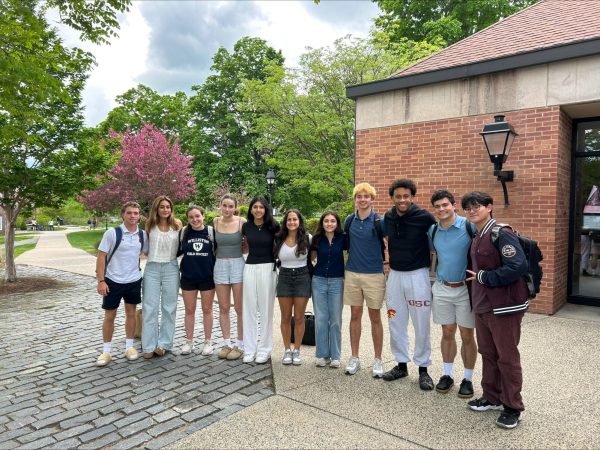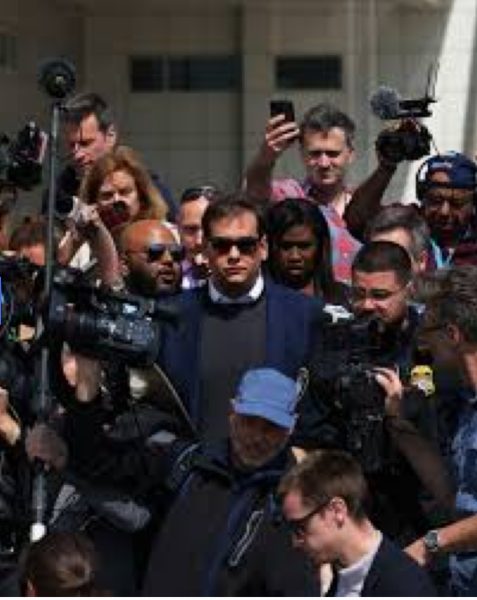Hate Speech is Free Speech
On April 20, Howard Dean, the 79th Governor of Vermont and former Chair of the Democratic National Committee, proclaimed to his 85,000 Twitter followers that “Hate speech is not protected by the first amendment.” Which begs the question: what is the meaning of this commonly used but rarely defined buzz-term, hate speech? Well, in Canada, Islamophobia is classified as hate speech, and criticism of Islam has been criminalized by the overlords of our northern neighbor. At UC Irvine, the American flag was determined to be hate speech, and had it not been for a veto by the student government president, the flag of our nation would have been banned from the SGA center of the federally funded campus. When Governor Dean set forth his liberal interpretation of the first amendment, which he later backed up on MSNBC, he did so in condemnation of a joke made by best-selling author Ann Coulter, and he did so in support of the violent renunciation of her right to speak on UC Berkeley’s federally-funded public campus.
Luckily for freedom-loving Americans, Governor Dean’s interpretation of our constitution couldn’t be more off-base. Hate speech is not a thing—at least not in law. However, a growing faction of millennials seem to follow the same line of thinking that drove Governor Dean to make his foolish pronunciations. In Berkeley, Ann Coulter was stripped of her first amendment rights because of violent threats made by a militant leftist conglomerate, ironically called Antifa (Anti-fascism). These self-proclaimed antifascists have a history of violently shutting down the speech of their political opponents. In America, Antifa and its sympathizers are to leftist politicians like Howard Dean what the Blackshirts were to Mussolini. Antifa hides behind words like hate-speech to justify its actions, but essentially, both of these fascist armies fight to silence critics of the collectivist agendas of their leaders or of the big-government takeover of the economy, also supported by their leaders.
For most of human history, at least since we started forming governments, it was the state that determined which ideas were acceptable and which were not. And of course, these standards were enforced either by the sword of the state or by the sword of the mob. America was different. And it still is. In America, we are blessed with a free marketplace of ideas. In America, we fight ideas with better ideas, not with swords. Imagine if the compelling arguments that made way for social changes such as the end of segregation had been stifled by the same government that enforced segregation in the first place. Where would be as a society?
Now one can certainly say: “But that speech is good speech. I like that speech. The bad speech is what shouldn’t be allowed.” But who are you to determine what is good and what is bad? A narcissist would say that he should be the arbiter of the boundaries of discussion. And this is what irks me about people who think like Howard Dean. This movement to ban hate-speech is founded upon narcissism: the self-absorbed belief that I should not have to confront ideas that upset me and that I, the arbiter of morality and truth, should be able to tell you what is correct. Disregarding the infringement on freedom, if this all-knowing being did indeed have all the answers, then maybe his sovereignty over conversation wouldn’t be such a bad thing. After all, what’s wrong with tyranny if the tyrant is always right?—or in other words, if he always does what you want? It’s wrong, because what you want is not always what is wanted by the rest of the world. And the best way to get to objective truth is not by stifling the ideas of your opposition. It’s by engaging with them. There will never be a ceasing of new ideas. Much like there will never be a ceasing of those who wish to stop these ideas from flowing.
After all, the war against free speech is by no means a leftist phenomenon. In fact, it was the liberals of Berkeley who led the Free Speech Movement on UC Berkeley’s campus in 1964. The squashers of free speech come from both sides of the aisle, but they always come from the side that is winning the culture war. In a previous generation, when America had a more Christian, conservative culture, it was the right that enforced censorship of provocative music. But today, in a world where one of the greatest male athletes of the aforementioned generation can win Woman of the Year, the liberals have obviously won the culture war, so it is the left-leaning politicians and their mobs who trample over the speech of the opposition. The answer to this predicament is not to allow the rulers of our government or the mobs of our streets to determine who wins the arguments. The answer is to take power away from the politicians so that they can’t infringe upon our freedoms and to enforce the law against the rioters so that they can’t take it either. In a free world, you might be uncomfortable with some of the things that you hear. But the alternative is a world in which those who seize political power and those who hold the biggest guns are the ones who control the discourse. You may like it when your group is in power and when your group has more thugs to enforce your views. But if and when your group is not in power, you won’t be able to argue your way back.
Furthermore, even if you kill someone’s so-called hate speech, you can never kill their thoughts. These evil ideas may be banished from the public, but they live on in private. And rather than allowing the sharpest minds to debate these stupid, immoral, and hateful arguments, the purveyors of these arguments will win the debates without any competent opposition to strike them down with the intellectual fervor that is required. So the arguments will ferment and grow, and in the underbellies of society, the people who partake in this hate-speech will grow angry with the constant criminalization and stigmatization of their ideas, and they will radicalize even more. Their ideas will thrive in the inevitable groupthink that will come about when these people are isolated from society.
So sure, criminalizing hate speech seems like a sweet idea. After all, wouldn’t it be just delightful if we could eradicate hatred? Unfortunately, we can’t. We can only dispute it. But if we feel the need to use violence to do so, then maybe it’s because we fear that our arguments can’t be held up by logic. In which case, maybe we should rethink our points of view.












Wayne Weddington • May 8, 2017 at 12:37 PM
Yours is a masterful, cogent argument. Well done.
The reality is that “hate speech” has become a euphemism for “speech that I do not like.” That is a product of fear: people are afraid to emerge from their own bubble. Some time ago, it occurred to me that many thought leaders with whom I disagreed were also clearly very intelligent people. I realized that it would be diminutive to attribute their different opinions to “hatred.” So I began reading, from Jared Diamond to Shelby Steele, to Charles Murray, to Bruce Bawer. And I realized that it is critical to understand the counterpoint fully in order to be fully informed and fully reasoned. That exercise of exploring the “other” did, in fact, move the needle of my teleological compass — in both directions. And for that I am grateful.
The moral of the story is to Listen. Which is why I am so troubled today by the public discourse. Everyone is yelling, and no one is Learning.
This openness to Learn and Listen is well-exemplified by the travails of Daryl Davis, the welcome friend of supremacists.
https://youtu.be/pESEJNy_gYQ